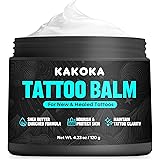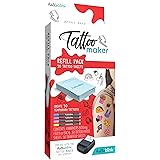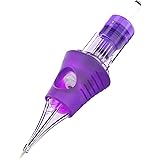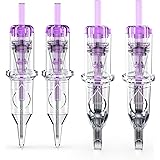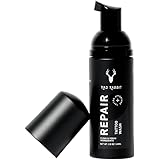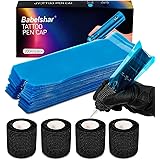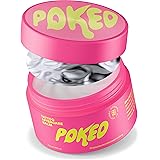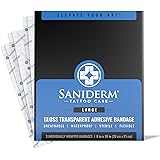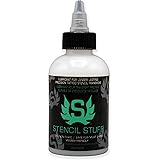Choosing your first tattoo machine can feel incredibly daunting, a sentiment echoed in the video above. The market is full of options, and for an aspiring artist just starting out, sifting through the technical jargon and endless models can be genuinely confusing. Fortunately, navigating the world of beginner tattoo machines doesn’t have to be a solo journey. This guide builds upon the insights shared in the video, offering a deeper dive into what makes a great starter machine and highlighting specific recommendations to help you make an informed decision.
Understanding Different Types of Tattoo Machines for Beginners
Before diving into specific recommendations, it’s essential to understand the primary types of tattoo machines available. The video primarily focuses on rotary pen-style machines, which are indeed an excellent choice for beginners. However, knowing the distinctions can help solidify your understanding.
Rotary Tattoo Machines: The Modern, Versatile Choice
Most of the machines discussed in the video, such as the Mast Archer, Ambition Soldier, and Bishop Wand, fall into the category of rotary tattoo machines. These machines operate using a small motor that drives the needle bar up and down in a smooth, consistent motion. They are often preferred by beginners for several reasons:
- Quiet Operation: Rotary machines are significantly quieter than traditional coil machines, making for a less intimidating and more comfortable tattooing experience for both artist and client.
- Reduced Vibration: The smooth motor action leads to less hand fatigue, which is crucial when you are still developing your technique and spend long hours practicing.
- Lighter Weight: Often designed as pen-style machines, rotaries are generally lighter and offer a more natural, pen-like grip, making them easier to handle for extended periods.
- Versatility: Many modern rotary machines are capable of both lining and shading, eliminating the need for multiple specialized machines when you’re just starting.
Coil Tattoo Machines: The Traditional Powerhouse
While not explicitly covered in the video, coil tattoo machines represent the traditional side of the industry. They operate using electromagnetic coils that rapidly attract and release an armature bar, creating the up-and-down motion of the needle. Coil machines are known for their distinct buzzing sound and powerful hit. They come in two main configurations:
- Liners: Designed for crisp, clean lines, they have a faster armature bar speed and a shorter throw.
- Shaders: Built for smooth color packing and shading, they have a slower speed and a longer throw.
While some veteran artists swear by coil machines, their heavier weight, increased vibration, and need for specialized tuning often make them less ideal for someone just picking up a tattoo machine for the first time. For beginners, the ease of use and versatility of a rotary machine are typically more beneficial for developing foundational skills.
Crucial Features to Consider When Choosing Your First Tattoo Machine
When selecting your ideal beginner tattoo machine, several key factors come into play. The video highlights stroke length and grip size, but let’s expand on these and introduce other considerations.
Stroke Length: A Game-Changer for Versatility
The speaker in the video rightly points out that stroke length is a significant consideration. This refers to how far the tattoo needle moves in and out of the tube with each cycle. Different stroke lengths are suited for different tattooing tasks:
- Shorter Strokes (2.5mm – 3.5mm): These are generally better for softer shading, delicate lines, and layering colors. They cause less skin trauma but may require multiple passes for solid lines.
- Medium Strokes (3.5mm – 4.0mm): This range is often considered a versatile sweet spot, capable of both lining and shading effectively, making it excellent for all-around work. Many beginner-friendly machines, like the Mast Archer, feature a fixed stroke in this range.
- Longer Strokes (4.0mm+): Ideal for bold lines, color packing, and certain types of realism work, these strokes drive the needle deep and powerfully, but can be more challenging for beginners to control without causing excessive trauma.
The video suggests opting for a machine with an adjustable stroke, even if it’s “a little more expensive.” This advice holds true because an adjustable stroke allows you to switch between different techniques without needing multiple machines. For instance, you could use a shorter stroke for fine detail work and then quickly adjust to a longer stroke for packing in color on a larger piece. This versatility effectively means “you’re only buying one machine rather than two or three at that point,” as the speaker mentions.
Grip Size and Ergonomics: Comfort is King
Your tattoo machine will become an extension of your hand, so comfort is paramount. The video emphasizes grip size preferences, mentioning the Bronk Staves for a smaller grip, the C&C Plus for a medium, and the Bronk Hummingbird for the smallest. This personalized approach is vital:
- Smaller Grips: Machines like the Bronk Staves and Bronk Hummingbird offer a feel similar to holding a regular pen or pencil. This can be beneficial for artists with smaller hands or those who prefer a more delicate, precise feel. A smaller grip can also reduce strain during intricate work.
- Medium Grips: The C&C Plus exemplifies a balanced grip, which is a good all-rounder for many artists. It offers stability without being overly bulky.
- Ergonomic Design: Beyond just diameter, look for a grip that feels natural in your hand. Some grips have contours or slight tapering that can enhance comfort and control, especially during long tattooing sessions. Discomfort leads to fatigue, and fatigue leads to shaky hands and potential mistakes.
Consider trying out different grip sizes if possible, or at least comparing the dimensions to tools you already find comfortable.
Weight and Balance: Essential for Control
The overall weight and balance of a tattoo machine significantly impact your control and endurance. A machine that is too heavy can quickly lead to hand fatigue, while one that is poorly balanced might feel awkward and difficult to maneuver accurately.
- Lighter Machines: Often preferred by beginners, lighter machines reduce strain and allow for more fluid movements. They are great for developing steady hands.
- Balanced Design: A machine where the weight is evenly distributed or slightly forward-weighted can feel more stable. Pay attention to how it feels when a cartridge needle is inserted, as this can shift the balance.
Build Quality and Durability: An Investment
While beginner tattoo machines are often more affordable, this doesn’t mean you should compromise on quality. A well-built machine, even at a lower price point, will be more reliable, durable, and perform consistently. Look for machines made from aerospace aluminum or other robust materials. Components like the motor and internal drive system should be sturdy. Investing in a machine with good build quality, such as the Bishop Wand despite its higher price tag, means less downtime for repairs and more consistent performance as you learn.
Recommended Beginner Tattoo Machines Spotlight
The video points out several excellent options for beginners, most of which fall “under $300,” making them accessible investments. Let’s delve deeper into these recommendations and what makes them stand out as the best beginner tattoo machine choices.
Mast Archer & Ambition Soldier: Solid Starter Pens
Both the Mast Archer and Ambition Soldier are frequently lauded as fantastic entry-level rotary pen machines. They offer a strong combination of performance, reliability, and affordability.
- Mast Archer: Known for its consistent performance and comfortable handling, the Mast Archer often comes with a fixed stroke length that is versatile enough for both lining and shading. Its robust motor provides reliable power, making it a great workhorse for practice and early client work. It provides a balanced feel that suits many hand sizes.
- Ambition Soldier: This machine is another top contender, often praised for its smooth operation and ergonomic design. Like the Mast Archer, it typically offers a dependable motor and a stroke length suitable for a wide range of tasks. Its intuitive design means beginners can focus more on technique and less on complicated adjustments.
These machines are excellent for anyone looking for a reliable, all-around rotary pen to kickstart their tattooing journey.
Bronk Staves, C&C Plus, Bronk Hummingbird: Grip-Focused Excellence
For artists particularly sensitive to grip comfort, the video highlights these machines, each catering to specific preferences.
- Bronk Staves: Recommended for those who prefer a “smaller grip,” the Bronk Staves offers a comfortable hold that can reduce hand fatigue during intricate work. Its lighter profile often makes it feel like an extension of the hand, promoting finer control.
- C&C Plus: Described as having a “sort of medium-size grip,” the C&C Plus strikes a balance between portability and stability. This makes it a great option for artists who find smaller grips too delicate but larger ones too bulky. Its overall performance is often reliable for general tattooing tasks.
- Bronk Hummingbird: Noted for having “the smallest grip of all” and being “great for the price,” the Bronk Hummingbird is an excellent choice for artists with very small hands or those who prioritize an extremely lightweight, nimble machine. Its affordability makes it an attractive option for budget-conscious beginners.
These models demonstrate that personal comfort is a legitimate and important factor in machine selection, especially for a beginner tattoo machine where developing good habits and control is key.
Bishop Wand: Investing in Premium Performance
While nearly $1,000, the Bishop Wand is mentioned as “well worth the money in the end.” This premium machine represents the pinnacle of rotary pen technology and offers professional-grade performance right out of the box. Bishop Wands are renowned for their:
- Exceptional Quality: Built with high-grade materials and precision engineering, Bishop Wands are incredibly durable and reliable.
- Consistent Performance: They deliver incredibly smooth and consistent power, which translates to cleaner lines and smoother shading.
- Ergonomics: Designed for professional use, they are exceptionally comfortable, reducing strain over long sessions.
- Specific Strokes: Bishop offers different Wand models (e.g., Liner, Packer, Shader) with specific fixed strokes optimized for their intended purpose, providing unparalleled performance for that task.
While a significant investment for a beginner, the Bishop Wand could be considered if you are serious about your career and want a machine that will last and perform at the highest level as you grow as an artist. It’s a machine you won’t quickly outgrow.
Beyond the Machine: Essential Gear for Aspiring Artists
A tattoo machine is just one piece of the puzzle. To effectively practice and eventually tattoo, you’ll need additional equipment. Consider these essentials when budgeting and setting up your first workspace:
Power Supplies: Consistent Power Delivery
Every electric tattoo machine requires a power supply to regulate voltage and deliver consistent energy. Look for a reliable power supply with a clear digital display and easy voltage adjustment. Some power supplies offer multiple outputs, allowing you to switch between machines if you eventually get a second one. Footswitches and clip cords (or RCA cords for most modern rotaries) connect your machine to the power supply.
Needles and Cartridges: Precision at Your Fingertips
Modern rotary machines primarily use cartridge needles. These sterile, single-use needle groupings are encased in a plastic housing, making them incredibly convenient and safe. They snap easily into your machine and include a membrane that prevents ink and bodily fluids from entering the machine’s motor. Understanding different needle configurations (liners, shaders, magnums, round magnums) is crucial for various tattooing techniques.
Practice Materials: Skin and More
You absolutely must practice extensively before tattooing human skin. High-quality synthetic practice skin is invaluable for developing hand stability, line work, shading, and understanding needle depth. You can also practice on fruits with thick skins like oranges or grapefruits, or even pig skin (from a butcher) for a more realistic feel. Do not skip this step!
Hygiene and Safety: Non-Negotiable
Tattooing involves breaking the skin, making strict adherence to hygiene protocols paramount. You will need:
- Gloves: Nitrile gloves are essential for preventing cross-contamination.
- Barrier Film: To cover surfaces and prevent contamination.
- Disinfectant: Hospital-grade surface disinfectant for cleaning your workspace.
- Distilled Water & Green Soap: For cleaning the skin during tattooing.
- Autoclave or Sterilization Bags: For traditional needles (if you venture into coil machines), but for cartridges, ensure they are pre-sterilized and individually packaged.
- Sharps Container: For safe disposal of used needles and cartridges.
Always prioritize client safety and your own by maintaining a sterile environment.
Navigating Your Budget for a Beginner Tattoo Machine
The video points out that many excellent beginner machines are available “under $300,” with a notable exception being the Bishop Wand, which is “nearly $1,000.” This range illustrates the spectrum of investment you might consider.
Initial Investment vs. Long-Term Value
For a true beginner, starting with a reliable machine in the $150-$300 range is a smart move. Machines like the Mast Archer or Ambition Soldier offer fantastic value, providing the performance you need to learn and grow without breaking the bank. As you gain experience, you might then consider upgrading to a premium machine like the Bishop Wand, understanding its higher cost as an investment in a professional tool that will serve you for years.
Remember that the machine itself is only part of the overall cost. Factor in a quality power supply, needles, practice skin, inks, and sterilization supplies. A comprehensive beginner kit might range from $400-$800, providing you with everything you need to start practicing safely and effectively. Ultimately, the best beginner tattoo machine is one that fits your budget, feels comfortable in your hand, and reliably performs as you embark on your artistic journey.


